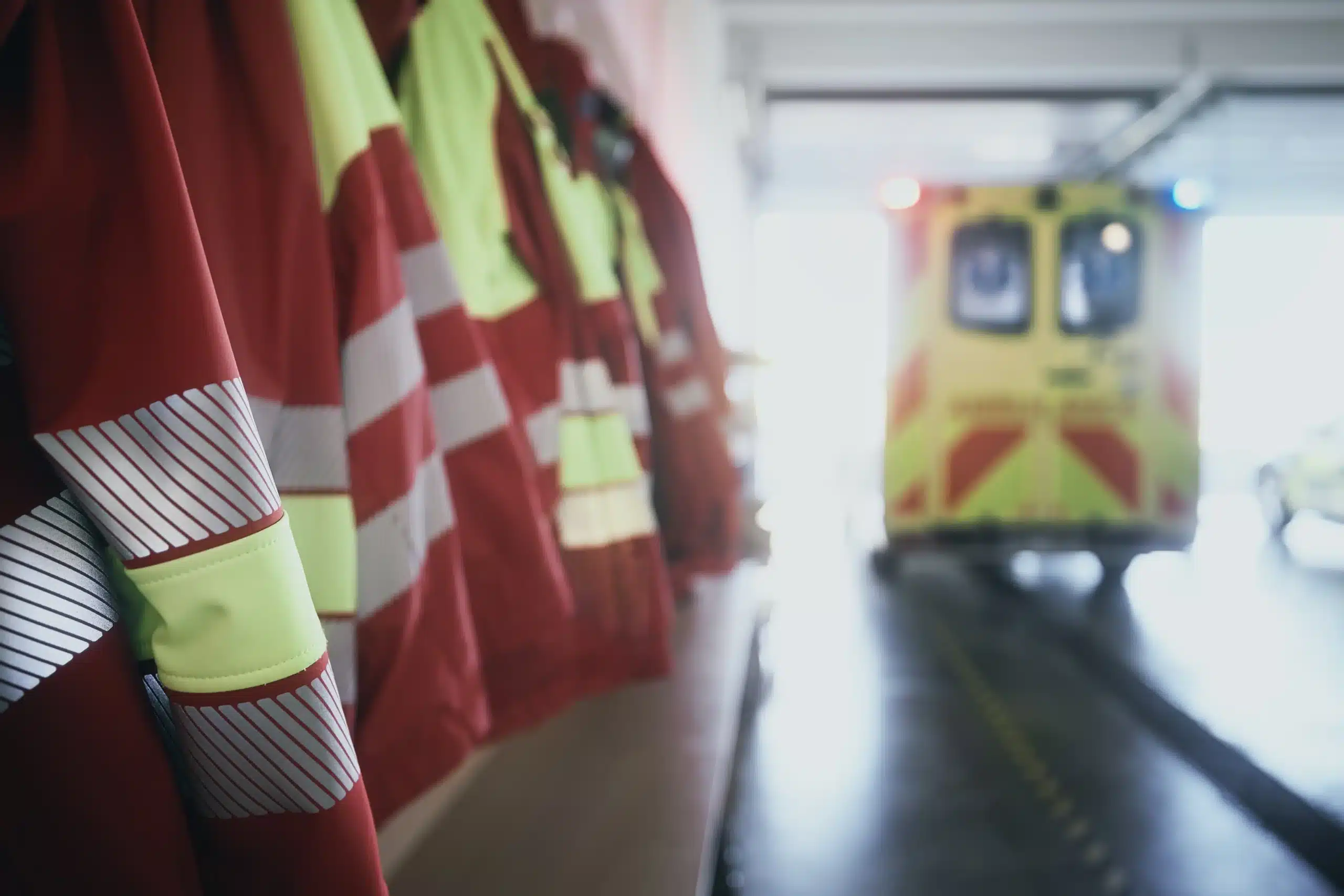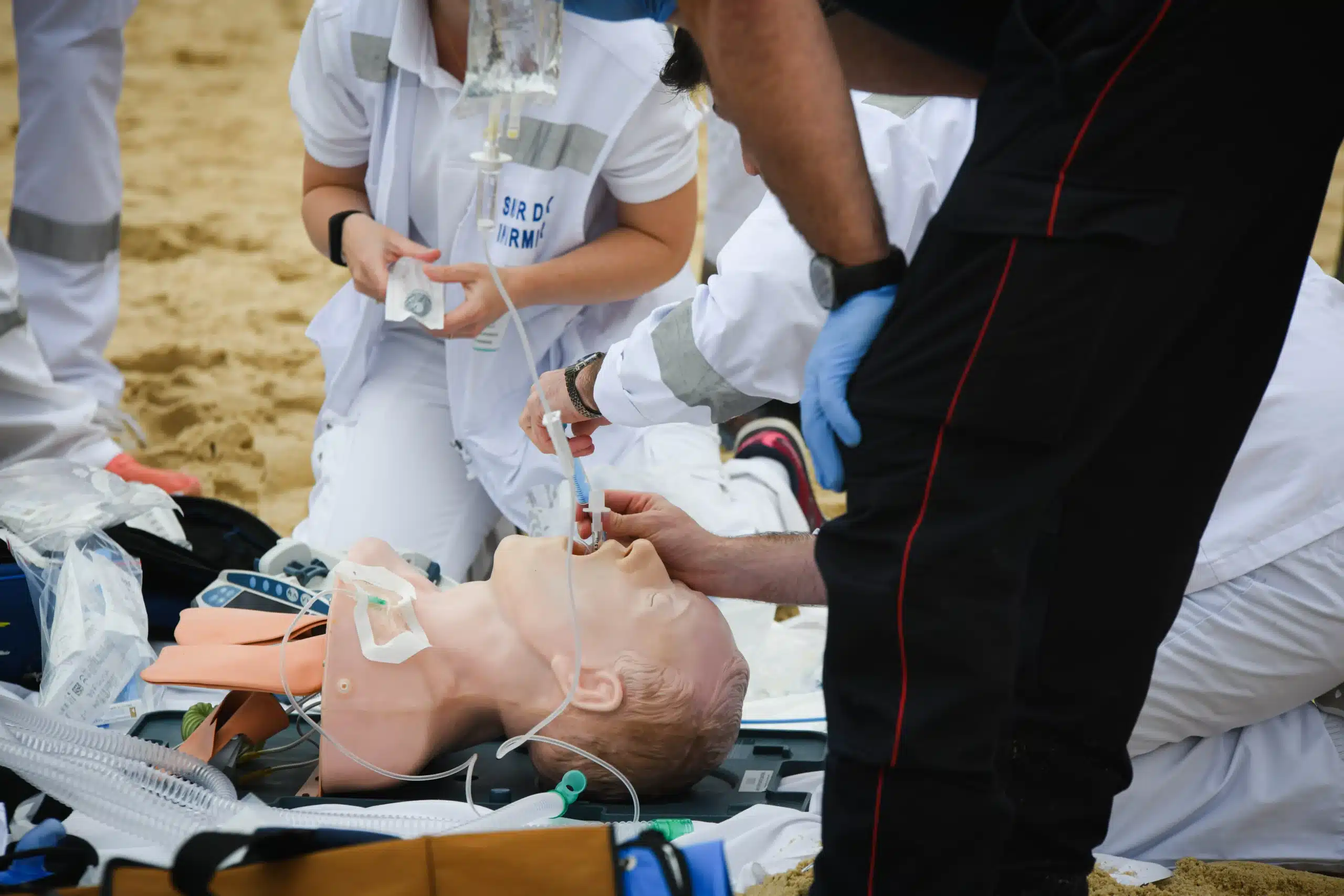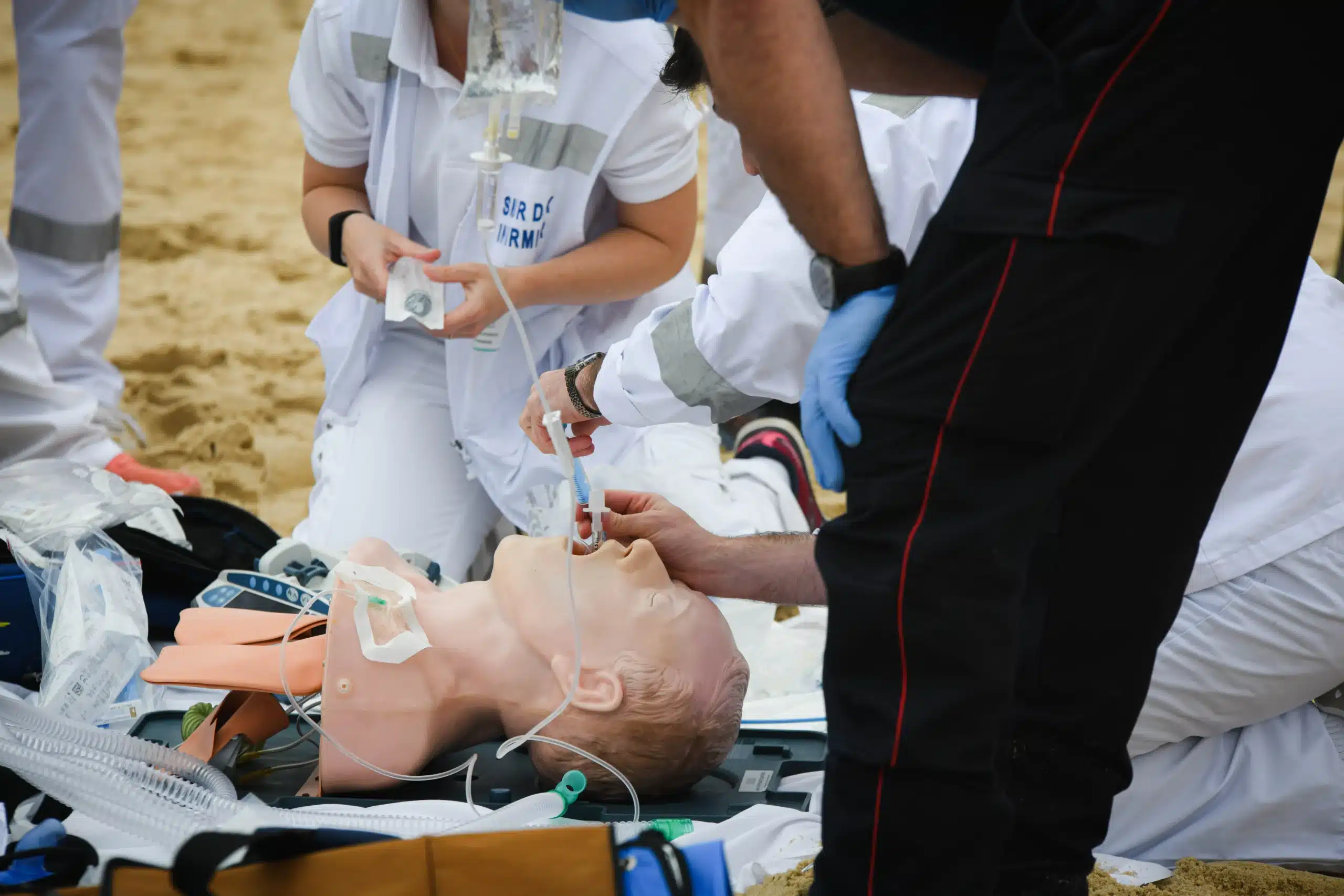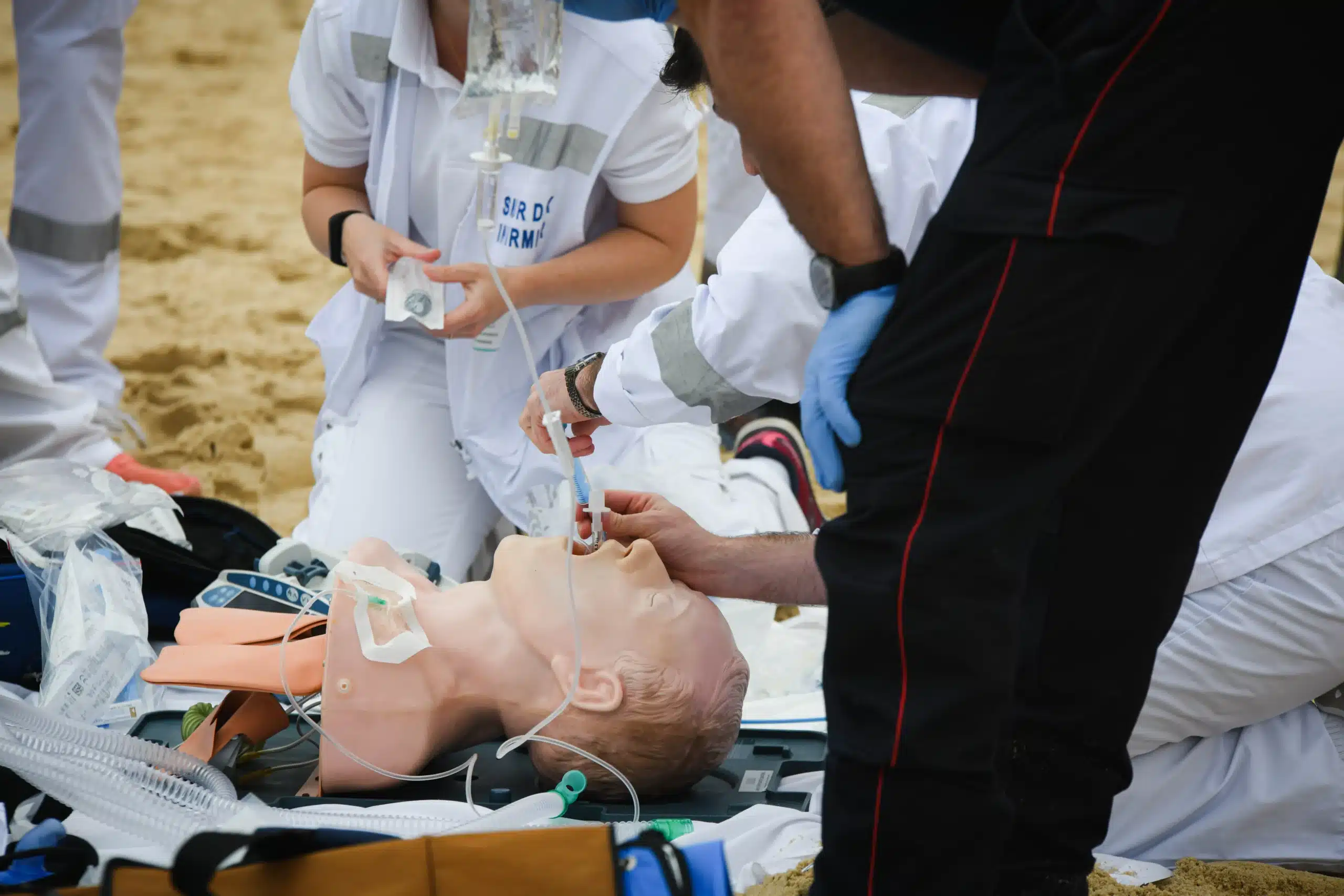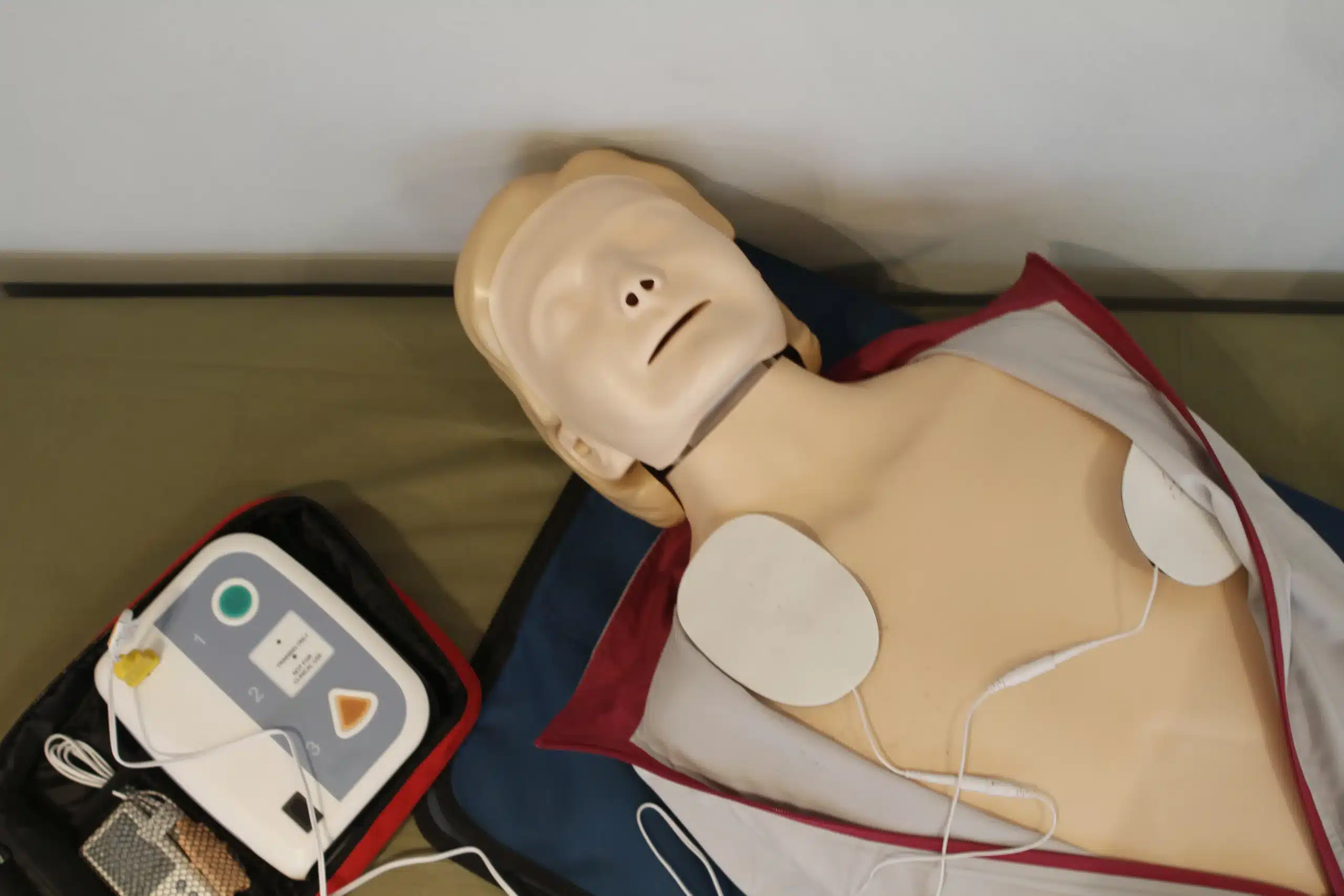Cardiac emergencies demand a swift and effective response, and that starts with highly competent healthcare providers. But traditional CPR training often struggles to keep pace with the demands of modern healthcare. RQI in Dublin offers a solution by providing a continuous improvement program that focuses on consistent practice and personalized feedback. This article explores how RQI is transforming CPR training, empowering healthcare professionals to maintain their skills, boost their confidence, and ultimately save more lives. We’ll delve into the program’s structure, benefits, and how it’s making a real difference in Dublin’s healthcare system.
Key Takeaways
- RQI provides flexible, skills-focused CPR training: Short, frequent practice and online learning fit busy schedules and improve long-term skill retention. This approach helps healthcare professionals maintain confidence and proficiency in CPR.
- RQI is accessible and affordable for Dublin healthcare providers: Various pricing options, including group discounts, make RQI a cost-effective way to maintain essential CPR skills. Local training centers and online resources make the program readily available.
- RQI strengthens Dublin’s emergency response capabilities: By promoting consistent, high-quality CPR skills, RQI enhances the standard of care and contributes to improved patient outcomes. The program’s data-driven approach allows for continuous improvement and better emergency preparedness.
What is the RQI Programme?
The Resuscitation Quality Improvement (RQI) program represents a significant advancement in CPR training. It’s designed to address the challenge of skill decay, a common issue with traditional CPR certification courses. RQI moves away from the traditional two-year certification model and adopts a more frequent, skills-focused approach. This helps healthcare professionals, from nurses and doctors to other healthcare providers, maintain their CPR skills and knowledge at a consistently high level.
CPR Training’s Evolution
Traditional CPR training often involves infrequent, lengthy sessions. While valuable initially, studies show that CPR skills decline rapidly following these courses. Recognizing this, the American Heart Association (AHA) developed the RQI program as a subscription-based solution. This new approach ensures that healthcare providers receive ongoing training and reinforcement, leading to better retention and improved patient outcomes. The shift towards low-dose, high-frequency training reflects a deeper understanding of how we learn and retain crucial skills like CPR. For more context, you can review these RQI FAQs for Staff.
Key RQI Components
The RQI program uses a blended learning approach, combining online modules with hands-on practice. It focuses on three key components: cognitive, psychomotor skills, and simulated patient cases. The cognitive component covers the essential knowledge and understanding behind CPR techniques. Psychomotor skills training emphasizes the practical application of chest compressions, rescue breaths, and other vital procedures. Finally, simulated patient cases allow healthcare providers to apply their skills in realistic scenarios, building confidence and decision-making abilities. This comprehensive approach ensures that providers are well-rounded in both theory and practice. The RQI Program Overview provides further details on these components.
How RQI Differs from Traditional CPR Training
Unlike traditional biennial CPR training, RQI emphasizes quarterly skill evaluation and reinforcement. This more frequent practice helps healthcare professionals maintain their skills and boosts their confidence. RQI also offers greater flexibility, allowing providers to complete training sessions in shorter bursts at their workplace, minimizing disruption to their schedules. This on-site training, often facilitated through mobile simulation stations, makes it easier for healthcare institutions to integrate RQI into their existing workflows. The focus on continuous improvement and real-time feedback sets RQI apart, creating a more effective and engaging learning experience. This article highlights how consistent training, like that offered by RQI, improves in-hospital CPR education. For those interested in learning more about the implementation of RQI, Laerdal Medical offers valuable resources and insights.
RQI Benefits for Dublin Healthcare Professionals
For healthcare professionals in Dublin, maintaining top-notch resuscitation skills is crucial. Resuscitation Quality Improvement (RQI) offers a modern approach to CPR training that brings several key advantages to both individual providers and healthcare systems.
Improve Skill Retention and Confidence
Traditional CPR training often suffers from a common problem: skills decay. After initial certification, providers may not have regular opportunities to practice, leading to a decline in proficiency and confidence. RQI tackles this issue head-on. Through frequent, short practice sessions and assessments, RQI reinforces essential skills and helps healthcare professionals maintain a higher level of competence. This regular reinforcement builds confidence, empowering providers to respond effectively in real-life emergencies. The RQI program is designed to combat this skills decay, ensuring that healthcare providers are always ready to deliver high-quality CPR.
Flexible Training Options
RQI offers a flexible training model that fits the busy schedules of healthcare professionals. Unlike traditional classroom-based courses, RQI incorporates self-directed learning modules and low-dose, high-frequency practice. This allows providers to complete training at their own pace and convenience, integrating it seamlessly into their existing workflow. The Irish Heart Foundation offers RQI programs based on American Heart Association science, making it accessible to healthcare providers across Ireland.
Enhance Patient Outcomes
The goal of any CPR training program is to improve patient outcomes. By maintaining higher levels of CPR skill proficiency and confidence, RQI contributes directly to better patient care during resuscitation events. Implementing the ILCOR’s 10 steps can further enhance in-hospital CPR quality and identify areas for improvement, leading to more positive outcomes for patients in Dublin.
Comply with Latest Guidelines
Staying up-to-date with the latest resuscitation guidelines is essential for providing the best possible care. RQI ensures that healthcare professionals are always current with the American Heart Association’s guidelines, providing an innovative approach to maintaining competency and issuing official AHA course completion cards. This adherence to the latest standards ensures that Dublin healthcare providers are equipped with the most current knowledge and techniques in CPR.
RQI Programme Structure in Dublin
RQI’s structure makes it easy to fit high-quality CPR training into busy schedules. It combines online learning with low-dose, high-frequency practice and provides personalized feedback. This blended learning approach ensures competency and builds confidence. Let’s break down the key components:
Self-Directed Learning Modules
The RQI Programme begins with self-directed learning. You’ll work through online cognitive modules covering essential CPR knowledge and AHA guidelines. These modules use a variety of engaging tools, including educational videos, simulated patient cases, and multiple-choice questions. This flexible format allows you to learn at your own pace and review material as needed.
Hands-on Practice Sessions
RQI emphasizes hands-on practice to build and maintain crucial CPR skills. These short, frequent sessions typically take place at your workplace, using a specialized manikin and skills station. The focus on “low-dose, high-frequency” training means you’ll practice regularly, reinforcing your skills and preventing skill decay. This distributed practice model helps embed the skills more effectively.
Real-Time Feedback and Assessment
During practice sessions, you’ll receive real-time feedback on your performance. The RQI system measures key metrics like compression rate and depth, providing immediate guidance and helping you refine your technique. This personalized feedback is essential for mastering high-quality CPR skills and ensuring you’re providing effective compressions and ventilations. This immediate feedback is a key differentiator from traditional CPR courses, which often rely on delayed or less specific instructor feedback.
Continuous Learning Approach
RQI isn’t a one-and-done course. It’s designed for continuous learning and improvement. By regularly engaging with the learning modules and practice sessions, you’ll maintain your CPR competency and earn an RQI eCredential, which verifies your skills and adherence to the latest AHA guidelines. This ongoing approach ensures you’re always prepared to deliver high-quality CPR when it matters most. This continuous reinforcement helps maintain proficiency over time.
RQI Cost and Accessibility in Dublin
RQI offers flexible training options and often comes at a lower cost than traditional CPR courses, especially long-term. Let’s break down the costs and explore how accessible RQI training is in Dublin.
Individual Pricing
RQI training costs vary depending on the provider and whether you’re renewing your certification or starting fresh. Many providers offer subscription models for individuals, allowing you to spread the cost over time. This makes RQI a more manageable expense compared to the lump sum payment often required for traditional CPR courses. The flexible, self-directed nature of RQI training means you can complete the program at your own pace, minimizing disruption to your work schedule. This on-demand accessibility is a major advantage for busy professionals. Check with your chosen training center for specific pricing details.
Group Rates and Organizational Discounts
For healthcare organizations and groups of individuals, RQI offers significant cost savings through group discounts. These discounts can make implementing RQI across an entire team or department much more affordable. This is a smart investment for organizations looking to improve patient outcomes and ensure their staff maintains excellent resuscitation skills. Contact RQI providers directly to discuss group rates and tailor a program to your organization’s needs. IU Health highlights these cost benefits in their FAQs.
Potential Funding Options for Healthcare Institutions
Larger healthcare institutions in Dublin might explore funding opportunities to support RQI implementation. Resources like the American Heart Association’s Get With The Guidelines program can provide data on patient outcomes and the potential impact of RQI, which can be instrumental in securing funding. Presenting a strong case for RQI’s benefits can help justify the investment and improve the quality of care within your institution.
Where to Access RQI Training
Finding an RQI training center in Dublin is easier than you think. Here are a few options:
Pleasanton CPR Classes
While not directly in Dublin, Pleasanton CPR Classes offers RQI training for healthcare professionals in nearby Pleasanton, serving the surrounding areas, including Dublin and San Ramon. They provide a convenient and accessible option for those seeking high-quality RQI certification. Their focus on flexible scheduling and personalized instruction makes them a great choice for busy professionals.
Other Authorized Training Centers
The Irish Heart Foundation partners with the American Heart Association to offer RQI programs throughout Ireland, ensuring access to high-quality training. You can find authorized RQI training centers on the RQI Partners website.
Online Platforms and Resources
Many RQI providers offer online platforms and resources to supplement in-person training. These platforms often include cognitive learning modules, eSimulations, and other interactive tools to reinforce learning and provide ongoing support. This blended learning approach can enhance knowledge retention and make RQI training even more accessible. IU Health, for example, provides online resources for their RQI participants.
Implement RQI in Dublin Healthcare Settings
Integrating Resuscitation Quality Improvement (RQI) into diverse healthcare settings across Dublin requires a tailored approach. Let’s explore how hospitals, clinics, and emergency services can effectively adopt RQI.
Hospital Integration
Hospitals can leverage RQI to meet their Basic Life Support (BLS) quality and compliance goals. The program’s structure, using short, frequent sessions at the point of care, makes it easier for healthcare professionals to refresh their skills and maintain competence. This distributed practice model offered by RQI fits seamlessly into busy hospital schedules. It also allows for consistent reinforcement of best practices, leading to improved CPR quality and potentially better patient outcomes. For hospitals looking to enhance their resuscitation practices, RQI provides a practical and efficient solution.
Clinic and Private Practice Adoption
RQI offers advantages for clinics and private practices as well. By adopting the RQI Programme, these settings can ensure their staff maintains up-to-date CPR skills without disrupting patient care. The program frees up instructors to focus on other training needs, such as advanced life support or specialized courses. This efficient use of resources makes RQI a practical choice for smaller healthcare settings. It allows them to provide high-quality care while optimizing their training efforts.
Emergency Services Incorporation
For emergency medical services, maintaining top-tier CPR skills is critical. Implementing RQI within these teams can significantly improve emergency response readiness. The RQI Program’s quarterly training model, aligned with ILCOR guidelines, helps ensure consistent, high-quality CPR delivery in time-sensitive situations. This regular practice and assessment can boost provider confidence and improve patient survival rates. Given the critical nature of their work, RQI offers emergency services a valuable tool for enhancing their life-saving capabilities.
Overcome Implementation Challenges
While integrating RQI offers numerous benefits, healthcare organizations may encounter challenges during implementation. These can include logistical hurdles, staff resistance to new procedures, or perceived cost concerns. However, studies show that the long-term benefits of improved CPR skills and potential cost savings outweigh the initial investment. A well-planned implementation strategy, outlined in resources like this research journal article, can help organizations successfully adopt RQI and realize its full potential. For those in the Dublin area, Pleasanton CPR Classes offers RQI training and can guide you through the implementation process.
RQI’s Impact on Dublin’s Healthcare System
RQI training is making a significant impact on healthcare systems, and Dublin is no exception. By focusing on consistent, high-quality CPR skills, RQI elevates the standard of care provided in emergency situations. Let’s explore the key ways RQI is transforming Dublin’s healthcare landscape.
Improve Emergency Response Readiness
When seconds count, healthcare professionals must be ready to deliver effective CPR. RQI ensures Dublin’s healthcare providers maintain their skills through frequent, low-dose practice sessions. This approach keeps CPR skills fresh in mind, leading to improved competence and confidence during real-life emergencies. The RQI program empowers healthcare professionals to respond swiftly and effectively, ultimately increasing the chances of positive patient outcomes. This consistent reinforcement of skills translates to a higher level of emergency response readiness across Dublin’s healthcare facilities.
Standardize CPR Skills Across Institutions
One of RQI’s strengths lies in its ability to standardize CPR skills across different healthcare institutions. Whether in a hospital, clinic, or private practice, RQI provides a consistent framework for CPR training and assessment. This standardization ensures all healthcare professionals in Dublin adhere to the same high standards, regardless of their specific work setting. This unified approach fosters a culture of excellence in resuscitation care throughout the city, leading to a more cohesive and reliable response system that benefits both patients and providers.
Long-Term Effects on Patient Survival Rates
The ultimate goal of any improvement in healthcare is to positively impact patient outcomes. RQI’s focus on maintaining high-quality CPR skills has shown promising results in improving patient survival rates. Studies, like the one published in the Nursing & Health Sciences Research Journal, have demonstrated that consistent, high-quality CPR significantly increases the likelihood of a positive outcome following a cardiac arrest. By investing in RQI, Dublin’s healthcare system is prioritizing patient care and working towards a future where more lives are saved. The RQI eCredential verifies competency in these essential skills, further reinforcing this commitment.
Address Common RQI Misconceptions
Let’s clear up a few common misconceptions about the RQI program. It’s understandable to have questions about a new approach to training, so we’ll tackle those head-on.
“It’s just another training course”
RQI isn’t just another one-and-done training. It’s a continuous improvement program, more like a subscription to maintaining essential CPR skills. Traditional CPR training often leads to skill decay. RQI combats this with short, frequent practice sessions that reinforce skills and build confidence. This ongoing reinforcement is key to ensuring you’re always ready to respond effectively in a real emergency. The American Heart Association developed RQI specifically to address this decay issue.
“It requires extensive time commitment”
Worried about adding another lengthy training to your already busy schedule? RQI is designed for flexibility. Short, regular practice sessions are more effective than infrequent, long training days. This approach makes it easier to integrate RQI into your workflow. You can complete the low-dose, high-frequency sessions at your own pace.
“Skills decay is not addressed”
The entire premise of RQI is to actively address skills decay. Instead of accepting declining skills, RQI replaces that decline with verified competence. Through consistent practice and assessment, you’re not just refreshing your memory – you’re building and maintaining proficiency. This leads to better patient outcomes. Learn more about how RQI combats skills decay and builds verified competence.
“Cognitive assessments are optional”
Cognitive assessments are a crucial part of RQI. They demonstrate your understanding of the latest CPR guidelines. These assessments ensure you’re not just performing the physical skills correctly, but also understanding the why behind them. This comprehensive approach ensures you’re fully prepared to handle any cardiac emergency. The RQI eCredential verifies your competency.
“RQI is only for new learners”
Whether you’re a seasoned healthcare professional or just starting your career, RQI offers valuable benefits. It’s not just for beginners; it’s for anyone committed to maintaining the highest level of CPR competency. Experienced providers can use RQI to stay sharp and up-to-date, while newer providers can build a strong foundation. The RQI program offers an innovative approach for all healthcare providers.
Strategies for Successful RQI Adoption in Dublin
Successfully integrating Resuscitation Quality Improvement (RQI) into Dublin’s healthcare landscape requires a strategic approach. These key strategies can help ensure effective implementation and maximize the program’s benefits.
Gain Leadership Support and Advocacy
Securing buy-in from healthcare leaders is crucial for RQI adoption. Leaders can advocate for RQI by communicating its value to staff, allocating resources, and fostering a culture that prioritizes continuous quality improvement in resuscitation practices. Addressing the challenges nurses face, such as staffing and educational requirements, is key. Open communication and collaboration between leadership and staff can identify and implement solutions that support RQI integration. For more insights into these challenges, see what RQI Partners has to say.
Integrate RQI into Existing Training Programs
Weaving RQI into current training programs can streamline implementation and minimize disruption. Since RQI programs are anchored in the American Heart Association’s science, aligning it with existing training creates a cohesive learning experience. The Irish Heart Foundation offers RQI programs specifically designed for the Irish healthcare market, making integration smoother.
Leverage Data-Driven Improvement
RQI provides valuable data insights into individual and team performance. Using this data to pinpoint areas for improvement and track progress is essential. The program’s features, such as cognitive learning modules, eSimulation patient cases, and multiple-choice exam questions, offer a wealth of information to refine training and enhance resuscitation skills. Learn more about RQI’s data-driven approach from IU Health’s FAQs.
Balance RQI with Busy Schedules
One of RQI’s strengths is its flexible, low-dose, high-frequency training model. This approach allows healthcare providers to fit training into their busy schedules without compromising quality. Laerdal Medical explains how this method helps providers maintain essential life-saving skills. Integrating short, frequent training sessions into existing workflows ensures consistent skill maintenance and minimizes the burden on staff.
The Future of RQI in Dublin
RQI isn’t static; it’s constantly evolving. Here’s a glimpse into what the future might hold for RQI in Dublin:
Technological Advancements in Training
RQI already uses technology with its eSimulation patient cases and online learning modules. Expect this to continue, with more sophisticated simulations, personalized learning, and virtual reality training. These advancements will make training more engaging and effective for Dublin healthcare providers. The focus on low-dose, high-frequency training, supported by platforms like Laerdal Medical, ensures skills stay fresh.
Expand RQI to Other Medical Skills
RQI frees up instructors to focus on other crucial areas. The Irish Heart Foundation notes this allows for more comprehensive training. We might see RQI’s principles of regular practice and assessment applied to other essential skills beyond CPR, creating a more well-rounded medical workforce. The RQI eCredential, which verifies CPR competency, could expand to include these additional skills.
Potential for Community-Wide Implementation
RQI’s success in hospitals could lead to broader implementation. Imagine a Dublin where high-quality CPR skills are widespread. Initiatives like ILCOR’s 10 steps offer a framework for improving in-hospital CPR quality and could be adapted for community programs. The partnership between the American Heart Association, Laerdal Medical, and the Irish Heart Foundation shows the potential to integrate RQI into community health strategies, empowering more people to respond effectively in emergencies.
Related Articles
- RQI Classes in Pleasanton, CA – Pleasanton CPR Classes
- NRP Certification in San Ramon: Your Guide – Pleasanton CPR Classes
- Pleasanton CPR Training: A Complete Guide – Pleasanton CPR Classes
- HeartCode PALS Dublin: Your Certification Guide – Pleasanton CPR Classes
- First Aid Classes in Pleasanton: Your Guide – Pleasanton CPR Classes
Frequently Asked Questions
How does RQI differ from traditional CPR classes?
RQI emphasizes short, frequent practice sessions and assessments, unlike the traditional two-year certification model. This “low-dose, high-frequency” approach helps maintain skills and boost confidence over time. It also integrates online learning modules for a more flexible and comprehensive learning experience.
What are the main components of the RQI program?
RQI combines online learning modules with hands-on skills sessions and simulated patient cases. The online modules cover the cognitive aspects of CPR, while the hands-on sessions focus on psychomotor skills like compressions and ventilations. The simulated cases allow you to apply your knowledge and skills in realistic scenarios.
Where can I find RQI training in or near Dublin?
Pleasanton CPR Classes offers RQI training near Dublin, serving Pleasanton, Dublin, and San Ramon. You can also find other authorized RQI training centers through the Irish Heart Foundation and the RQI Partners website. Many providers also offer online resources and platforms to supplement in-person training.
How much does RQI training cost?
RQI training costs vary depending on the provider and whether you’re renewing or starting fresh. Many providers offer subscription models, which can be more budget-friendly than traditional CPR courses. Group discounts are often available for organizations. Some healthcare institutions may also qualify for funding opportunities to support RQI implementation.
How can RQI benefit my healthcare organization?
RQI can improve CPR competency and confidence among your staff, leading to better patient outcomes. It also helps standardize CPR skills across your organization and ensures everyone is up-to-date with the latest guidelines. The flexible training model makes it easier to integrate into busy schedules and minimize disruptions to patient care.

